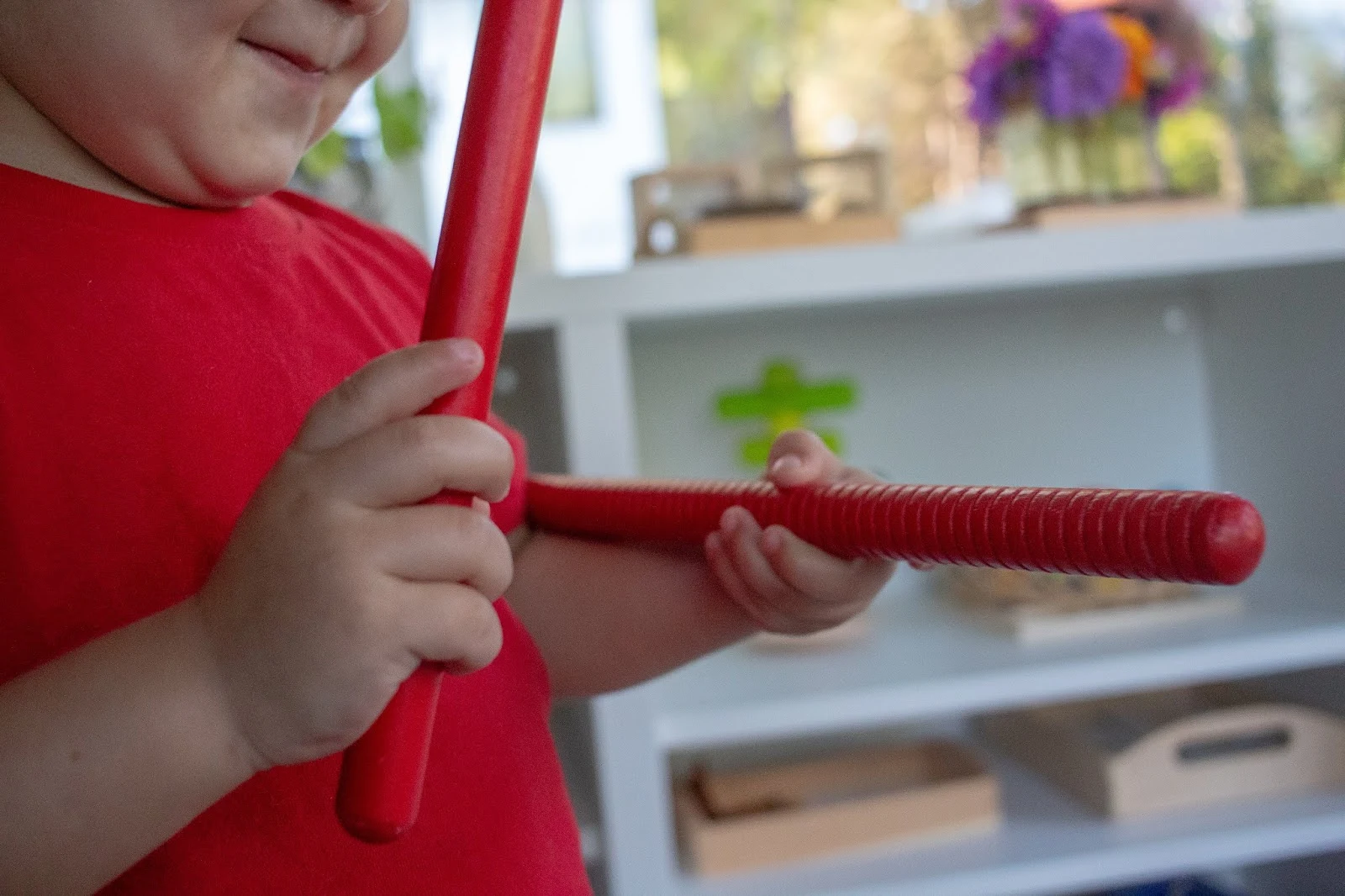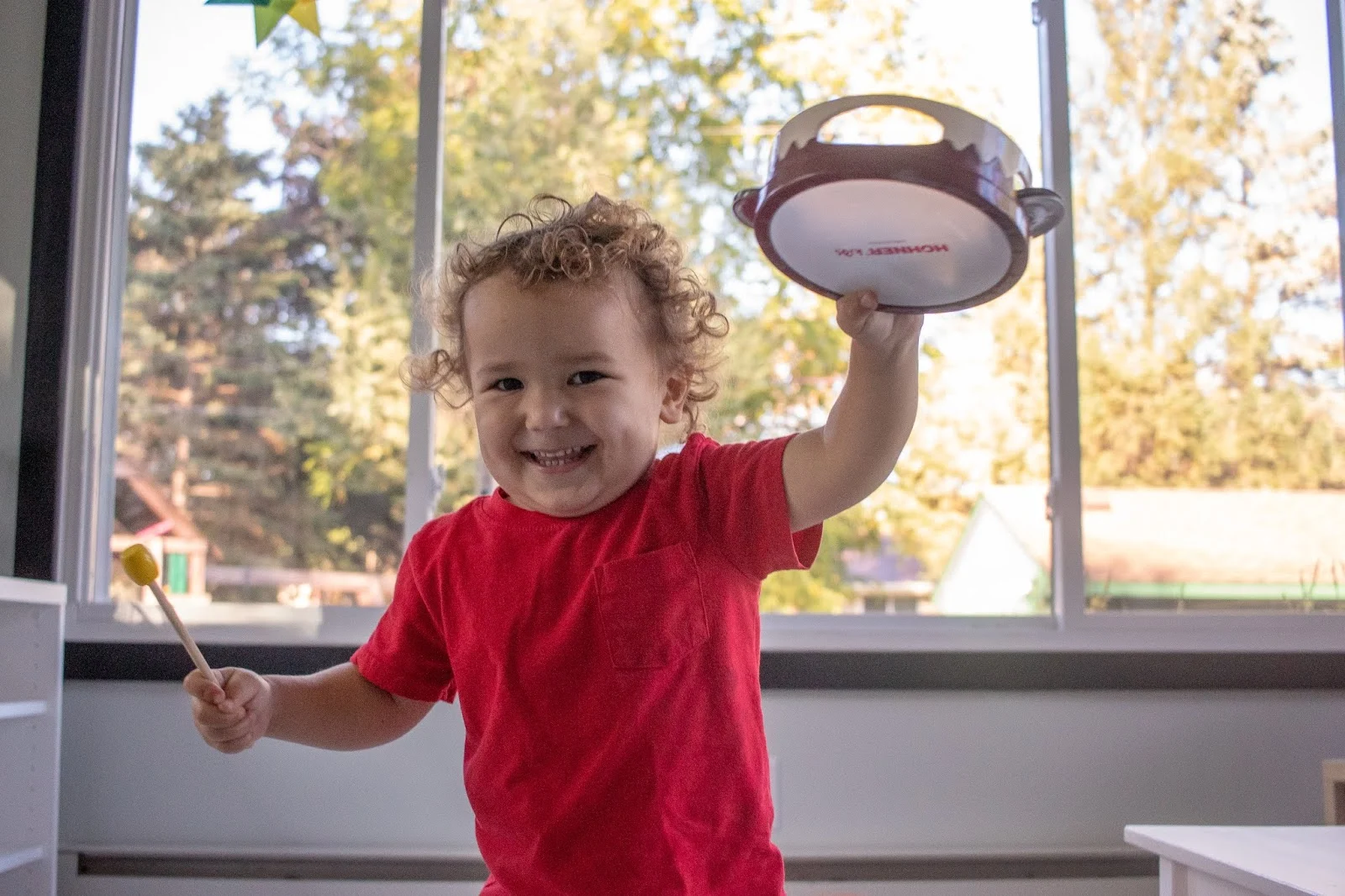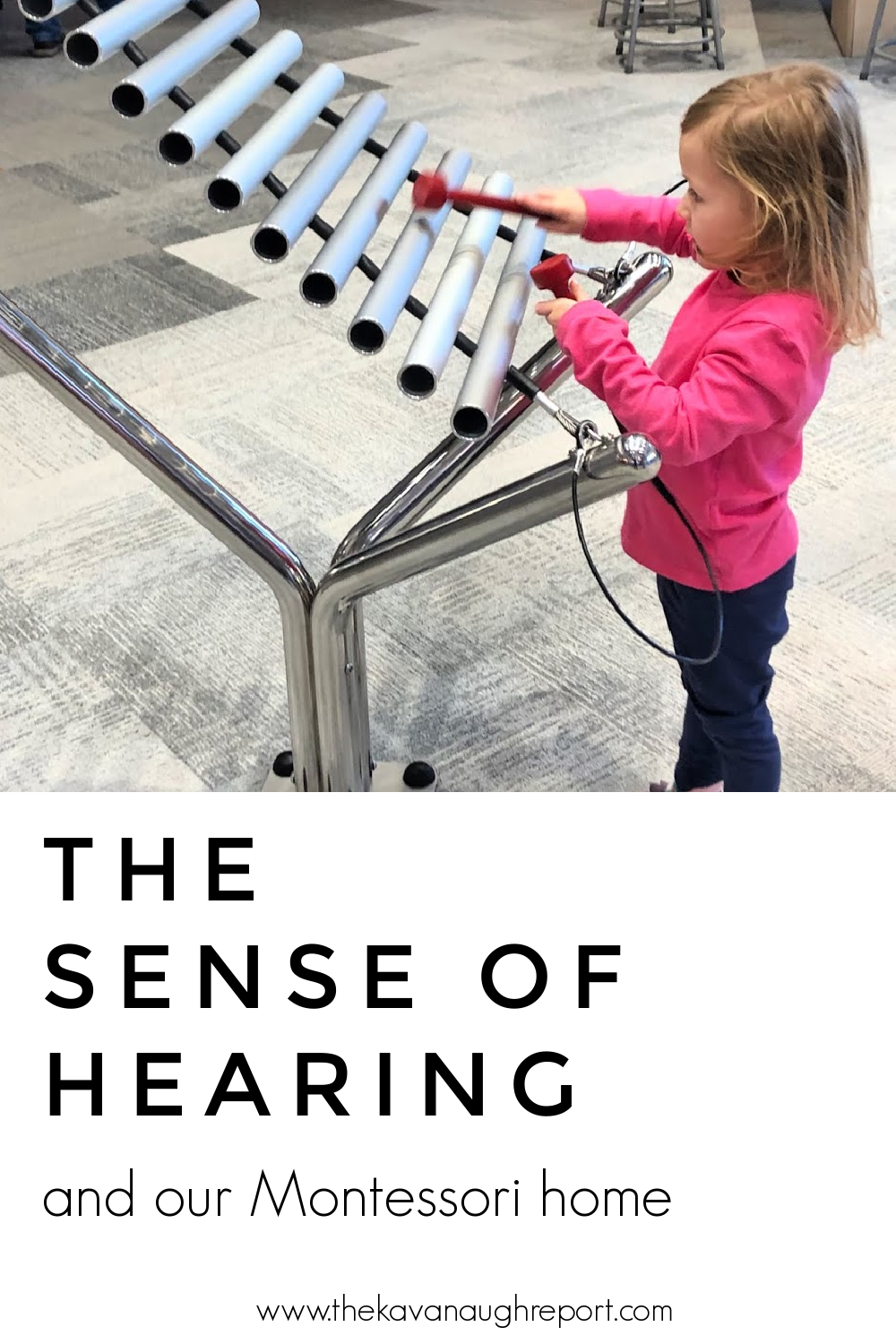Learning by and through the senses is such an important part of Montessori. Everything a child learns in a Montessori environment (including a Montessori home) should in some way be taught through the senses - children are learning by touching, feeling, listening, and moving. But, we don't just throw a child into an environment and expect them to use their senses to figure it out.
"To have educated senses is to perceive the beauty of the environment. It is to perceive the subtle differences. When you are aware of these delicate differences, the whole world is more fascinating." Maria Montessori, 1946 London LecturesA Montessori environment also helps to cultivate each sense. We want to give a child the opportunity to develop each sense individually. Maria Montessori stressed time and time again the importance of isolating and engaging a child through his/her senses. For example, she said, "if one sense is isolated, it seems to be enhanced in its power of perception. The possibility of perception is more profound. It is the concentration of the conscious mind upon that sense...We take note of all these facts in order to help the children receive clear impressions. If one sense fails, the other seem to be sharpened." {The 1946 London Lectures} Therefore, materials and opportunities are provided to help a child develop each sense.
This post contains affiliate links at no cost to you.
The Sense of Hearing and Montessori Homes
The sense of hearing is one that I think can be easily taken for granted. I know I have just assumed that my children are working on this all the time. And, in many ways they are. But, it is still important to make consistent effort to isolate and develop a child's sense of hearing. In particular, this is important as we work toward reading. Children's sense of hearing can influence a child's ability to isolate and hear sounds - an important part of learning to read.Babies and Young Toddlers
Developing the sense of hearing starts from birth. Babies* are programed to be attuned to language. Theodore is at this point, even at a couple weeks old. In fact, listening to their mother's voice is one of the very first important points of reference for a baby after they are born.This period is one for exposure! Exposing your child to language, to music, to all the sounds of their environment. Here are a few things you can do with your child to develop their sense of hearing during this time:
Use real, rich language with your child. Skip baby talk or making up nonsense words. Talk to your child as you would an adult. Read to your child. Talk to other adults around your child. Expose your child to the nuances of your natural language - and do so frequently.
Expose your child to a variety of types of music. Play music in your home, go and experience real life performances with real musical instruments.
Introduce simple instruments that connect movement to sound. Not only are instruments fun, they help a child to learn rhythm, movement, and sound. Children are learning that it's through movement that sound is made. Some examples of simple instruments include:
Older Toddlers
Older toddlers are still unconsciously absorbing all the impressions that they are getting from their environment. But, they are ready for a bit more. They are in the middle of the sensitive period for spoken language and will be very attuned to all the sounds - especially language - around them. Many will go through a language explosion around this time. Gus has been doing many of these things for the past several months.
Some things to consider to continue to develop your child's sense of hearing at this age include:
Sing songs, hand plays, rhymes. These are not only fun but again help a child to explore language and how it is used to create sound.
Read poetry. Poetry is perfect for playing with language via the sense of hearing. It can introduce rhyming, cadence and creativity. A few favorite poetry books for toddlers include:
Play sound bingo or go on listening walks. These games are fun ways to start to isolate sounds in the environment. This will be an important skill as your child moves toward isolating letter sounds.
Introduce more complex instruments. These instruments isolate real notes and the concept of scale. They are, however, more expensive than traditional toddler instruments. Examples include:
Present sound cylinders. These also isolate one sound at a time but add the complexity of matching the same sound together. These can be DIYed with identical containers or purchased as a set.
Preschoolers
By the time children are ready for children’s house the my are ready for more when it comes to developing their auditory sense. They are ready to actively participate in lessons that lead to reading. Gus is just about here and over the next couple months we’ll be doing more and more of these activities to prepare his ears for reading.
Here are some ways to support your preschooler develop their sense of hearing:
Play Sound Games. Sound games are the first step in learning to read using the Montessori method. While playing sound games, children start to listen for and isolate sounds at the beginning, middle, and end of a word. I'll be sharing more about sound games soon as I just started introducing these to Gus, but you can read more here about the process.
Use the Montessori bells. I'm including this on the list because its such a genius part of the Montessori classroom. These bells are a set of matching notes in a perfect pitch. Nora uses these at school and they are really beautiful. The bells all look the exact same so only the sound is isolated and the children can match the tones perfectly. The problem is they are OUTRAGEOUSLY expensive. So much so that many schools can't even afford them. I just wanted to mention it here, but it's not reasonable for most homes.
Play the Silence Game. Sometimes being silent is just as important as making noise. Nora loves to play this game with her class. They all try to be as silent as they can as they work or gather until the game is over. Read more about the silence game here.
Learn to play an instrument. Many families also choose the preschool years to introduce a musical instrument. The Suzuki method is often mentioned as a Montessori friendly approach toward music education. We haven't, at this point, taken this route with our kids.
*In this article, I'm strictly speaking about hearing children.
---







